
Tuvalu, formerly known as the Ellice Islands, is an island country in the Polynesian subregion of Oceania in the Pacific Ocean, about midway between Hawaii and Australia. It lies east-northeast of the Santa Cruz Islands, northeast of Vanuatu, southeast of Nauru, south of Kiribati, west of Tokelau, northwest of Samoa and Wallis and Futuna, and north of Fiji.
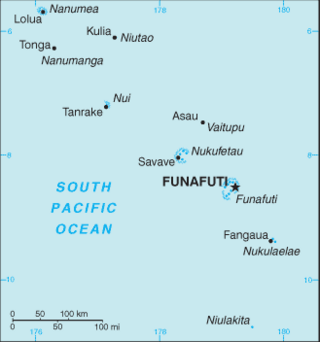
The Western Pacific nation of Tuvalu, formerly known as the Ellice Islands, is situated 4,000 kilometers (2,500 mi) northeast of Australia and is approximately halfway between Hawaii and Australia. It lies east-northeast of the Santa Cruz Islands, southeast of Nauru, south of Kiribati, west of Tokelau, northwest of Samoa and Wallis and Futuna and north of Fiji. It is a very small island country of 26 km2 (10 sq mi). Due to the spread out islands it has the 38th largest Exclusive Economic Zone of 749,790 km2 (289,500 sq mi). In terms of size, it is the second-smallest country in Oceania.
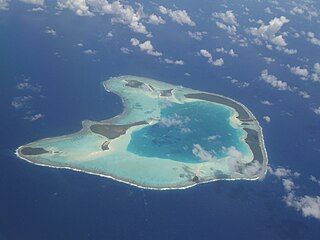
An atoll is a ring-shaped island, including a coral rim that encircles a lagoon. There may be coral islands or cays on the rim. Atolls are located in warm tropical or subtropical parts of the oceans and seas where corals can develop. Most of the approximately 440 atolls in the world are in the Pacific Ocean.

The first inhabitants of Tuvalu were Polynesians, so the origins of the people of Tuvalu can be traced to the spread of humans out of Southeast Asia, from Taiwan, via Melanesia and across the Pacific islands of Polynesia.
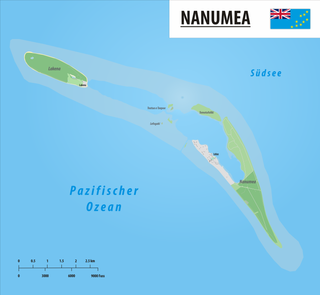
Nanumea is the northwesternmost atoll in the Polynesian nation of Tuvalu, a group of nine coral atolls and islands spread over about 400 miles (640 km) of the Pacific Ocean just south of the equator and west of the International Date Line. Nanumea is 4 km2 (1.5 sq mi) with a population of 512 people.

Maybanke Susannah Anderson was an Australian suffragist and education reformer involved in women's suffrage, Federation of Australia and the Free Kindergarten Movement.

Millicent Preston-Stanley was an Australian feminist and politician who served as the first female member of the New South Wales Legislative Assembly. In 1925, she became the second woman to enter government in Australia. She was also among the first women in New South Wales to become Justices of the Peace and served as president of the Women Justices Association from 1923 to 1926. Throughout her life, Preston-Stanley advocated for women's rights, health reform, and temperance.

Irene Maud Longman was an Australian community worker and politician. She was the first woman elected to the Parliament of Queensland, representing the Queensland Legislative Assembly seat of Bulimba from 1929 to 1932 as a member of the Country and Progressive National Party (CPNP).

Margaret Edgeworth David McIntyre, was the first woman elected to the Parliament of Tasmania, representing the seat of Cornwall in the Legislative Council.

Sir Tannatt William Edgeworth David was a Welsh Australian geologist and Antarctic explorer. A household name in his lifetime, David's most significant achievements were discovering the major Hunter Valley coalfield in New South Wales and leading the first expedition to reach the South Magnetic Pole. He also served with distinction in World War I.

Edgar Ravenswood Waite was a British/Australian zoologist, ichthyologist, herpetologist, and ornithologist.
Walter George Woolnough was an Australian geologist.
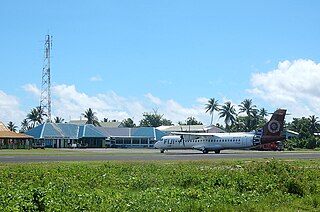
Funafuti is an atoll, comprising numerous islets, that serves as the capital of Tuvalu. As of the 2017 census, it has a population of 6,320 people. More people live in Funafuti than the rest of Tuvalu combined, with it containing approximately 60% of the nation's population. The main islet, Fongafale, hosts Vaiaku, the administrative center of the nation.

Mary Lord née Hyde was an English Australian woman who in the period 1855 to 1859 sued the Commissioners of the City of Sydney and won compensation for the sum of over £15,600 for the inundation of her property at Botany.

Olive Fitzhardinge (1881–1956) was an Australian rose breeder, the first to patent her work. Her four surviving roses are held in Australian collections. Her roses were well received in the 1930s but after the Second World War favoured styles of roses changed significantly.

Women in Tuvalu continue to maintain a traditional Polynesian culture within a predominantly Christian society. Tuvaluan cultural identity is sustained through an individual's connection to their home island. In the traditional community system in Tuvalu, each family has its own task, or salanga, to perform for the community. The skills of a family are passed on from parents to children. The women of Tuvalu participate in the traditional music of Tuvalu and in the creation of the art of Tuvalu including using cowrie and other shells in traditional handicrafts. There are opportunities of further education and paid employment with non-government organisations (NGOs) and government enterprises, education and health agencies being the primary opportunities for Tuvaluan women.
Joan Kerr (1938–2004) was an Australian academic and cultural preservationist. Initially her interest was sparked in preserving the architectural heritage of Australia, but over time her interests spread to art history and Australian culture in general. She taught at many universities throughout the country and was involved in Historical Societies and Preservation Trusts in a variety of the territories. She wrote books on Australia's historic architecture, feminist artists, cartoonists and her major life work was producing the Dictionary of Australian Artists: Painters, Sketchers, Photographers and Engravers to 1870.
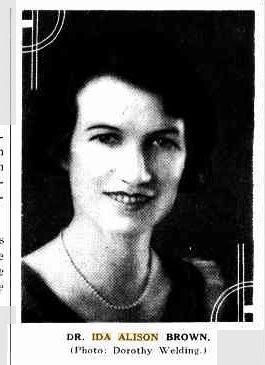
Ida Alison Browne was an Australian geologist, petrologist and paleontologist at the University of Sydney.
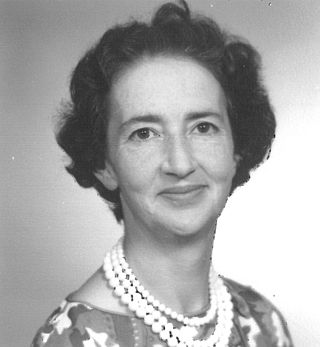
Margaret Hurlstone Hardy Fallding was a developmental biologist in Australia and Canada who studied hair follicles.
















